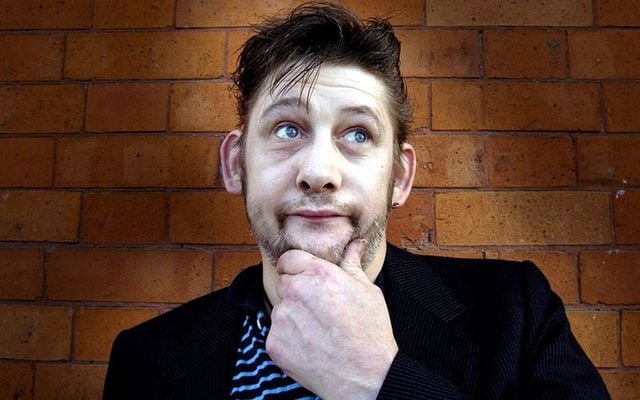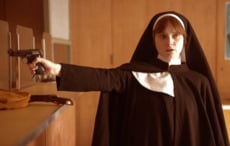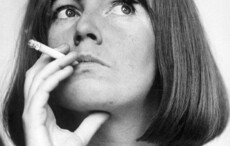Shane MacGowan sadly passed away on November 30, 2023. The send-off Irish artists gave The Pogues singer/songwriter in Tipperary was heartfelt and communal, a public event that shone a light - as he had himself - on the enduring beauty of the Irish tradition.
*Editor's note: This article was originally published in 2023.
It was MacGowan's genius to see the connection between the anarchy of punk and the protest and passion of Irish traditional music.
As soon as he combined them, it was like they always had been. But they hadn't always been.
In fact, many of the Irish bands that he loved best stretched the punk sensibility to the brink of snapping, but MacGowan – a son of Irish immigrants in London - saw no contradictions, only creative opportunities.
That was brought home to concertgoers during any one of The Pogues' remarkable live performances. Onstage, walking unsteadily, delicate looking, and yet always visibly defiant, he could let out a guttural yowl on a song like "The Sick Bed Of Cuchulainn" that could blow the roof off a place.
I saw it happen. I last caught The Pogues at Webster Hall in New York in one of their all firing on cylinders performances that was so full of the freewheeling anarchy that I half suspected a riot was in the offing.
Where do you put that much passion and energy? That was the question Pogues gigs were always asking and the answer was always the same: you put them into music and song, where else?
But onstage, MacGowan could achieve an untrammeled wildness that I have never seen in another performer. It took me a while to figure it out but I think he was expertly channelling an oppressed tradition and letting it finally have its say. No wonder the roofs lifted off.
It had a shadow side too, all that. Although The Pogues often gave expression to love, desire, and celebration, they also traveled to the heart of the Irish tradition – and to the darkness that lives there alongside the light – and they jumped up and down on it fearlessly.
I want to come back to MacGowan's riveting yowl, though. It was unmistakably shamanic that sound, it logged you right into the mothership no matter where you - or he - were in the world and this is why Ireland loved him. It was a trick that was no a trick at all. No matter where you were he brought you home. To yourself. To each other. You can't put a price on that.
Looking at him, with his lighthouse gaze and his mouth full of broken teeth, he was in some ways an avatar of Ireland (although he would have hated the suggestion) a poet, capable of unforgettable utterances, a musician who knew how to bewitch and captivate an audience.
But he was also at times a reeling drunk from a shattered land - although one generation removed - and he could uncomfortably resemble the kind of haunted old codger you could find lolling about on the Kilburn High Road. He knew that, too.
A picture of both defiance and self-destruction, his warring impulses inevitably spoke to - and of - a colonized people about the damage done to them and their tradition over centuries. In some ways, he was a literal embodiment of it, a Rorschach of our inner lives, oscillating between defiance and despair at the state of our broken inheritance.
What he did that was revolutionary was to say look again, look afresh. Irish traditional music is vital, it's passionate, it's punk rock, he told us. Look at how it can connect you to the root of yourself. And to each other. He was living proof.
In Thatcher's England, which in the 1980s was high on the myth of itself (still shadow-playing an imperial power although the empire was long gone) MacGowan and The Pogues were like Irish contraband smuggled into the New Romantic party that said never mind the bollocks, here's "Sally MacLennane."
You have to remember how reviled the Irish often were in the England of the period. MacGowan ran toward, rather away, from the tradition that gave the lie to all the aspirational yuppie music videos of the period. He was so out of fashion he was cool.
Michael D. Higgins, the President of Ireland, loved him with a degree of reverence that only one Irish poet will pay to another. His statement on MacGowan's death is a haiku of praise and sincerity.
The shock of losing two iconic Irish singers, MacGowan and Sinéad O'Connor - both of whom I would argue we are still learning to appreciate fully - in the same year breaks the heart. But the truth is they have richly accomplished the artistic mission they must have set themselves: to make us look afresh at the beauty – and the defiance – of the tradition we have often missed. They broke a long silence and they always will.




Comments